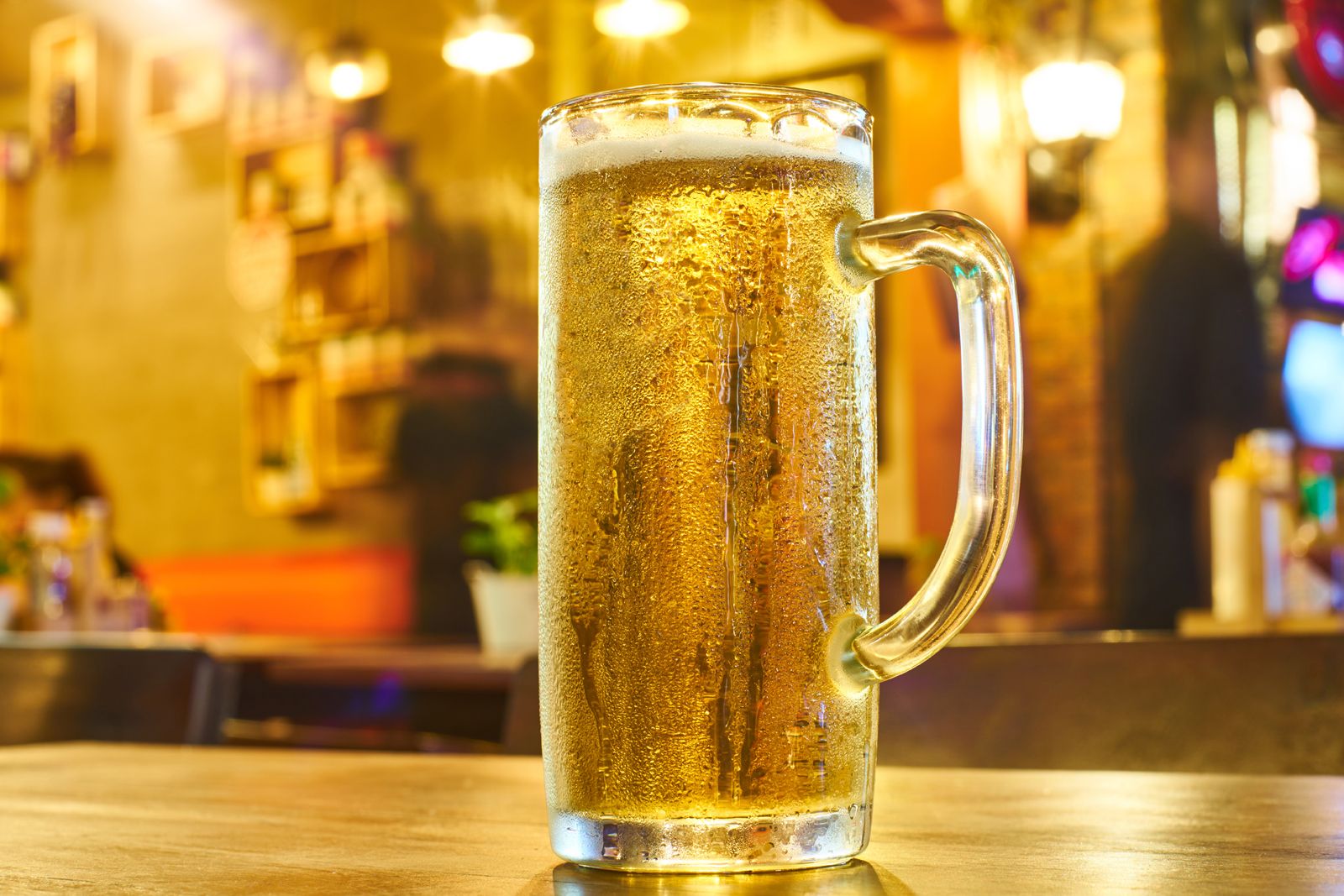BEER SALES & CLUBS
HIGH RISK MERCHANT ACCOUNTS FOR BEER SALES & BEER CLUBS.
FASTER APPROVALS. COMPETITIVE PRICING. BETTER SERVICE.

HIGH RISK MERCHANT ACCOUNTS FOR BEER SALES & BEER CLUBS.
FASTER APPROVALS. COMPETITIVE PRICING. BETTER SERVICE.
Ecommerce has created an exciting opportunity for beer clubs and craft beers to expand their market and increase sales. Today, authenticating digital identities and validating the age of customers is so accurate that even age restricted products like alcohol can be safely sold online. To help merchants understand how to sell age restricted products online DigiPay Solutions has created a Beer Clubs and Beer Sales Report with additional important information about setting up a merchant account and keeping merchant accounts in good standing.
DigiPay Solutions is a recognized payment processing brand among leading beer clubs and sales. The company’s extensive network of partner banks, payment experts and elite portfolio of tailored solutions has helped launch entrepreneurial start-ups and take enterprise organizations to the next level of corporate growth.
Thousands of merchants, from start-ups to enterprise-scale organizations, leverage DigiPay’s curated knowledge of high-risk payments to securely process hundreds of millions across an array of vertical industries. DigiPay works closely with beer sales and club merchants to provide tailored solutions and timely advice, while helping them maintain the highest standards of banking and payment card industry compliance.
DigiPay’s team of experts, combined with our partners’ proven record of successful beer sales and clubs can facilitate successful new company launches and help existing businesses grow and scale.
In 2015, the global beer market revenue was $522.60 billion-dollars worldwide. People love their beer, no matter what country they are from. The industry’s rapid growth has been changing the way that beer is being sold, with online transactions and craft breweries increasing in popularity.
Any occasion can be improved with a cold, refreshing glass of beer. According to Best Toppers, beer is the world’s most popular alcoholic beverage and third most popular beverage overall behind water and tea.
An emerging trend within the beer clubs and sales industry is that craft beer is becoming more popular than ever. The number of breweries popping up everywhere supports this. The Brewers Association explains that in 2013, there were about 3,000 breweries in the U.S. That number has since increased to over 6,000.
Shane Welch, the founder of Sixpoint Brewery, states that the upcoming trend within the craft beer industry is that people will begin to realize that their time is better spent drinking their beers from home and not wasting their precious time waiting in line. This is great news for those who plan on selling their beers online.

Beer sales and clubs are categorized by SIC Codes, NAICS Codes and Visa Merchant Category Codes (MCC) to comply with payment card industry requirements.
Proper classification is vitally important to prevent funds from being held in reserve for misrepresentation. The beer clubs and sales industry has a specific SIC code which is grouped under “Beer, Wine, and Liquor stores” in NAICS or MCC codes, and can be classified according to the nature and focus of products. The following are some examples:
SIC Code 5181: Beer and Ale
SIC Code 2082: Malt Beverages
NAICS Code 312120: Breweries
MCC Code 5921: Package Stores, Beer, Wine, Liquor
Additional information on Visa MCC can be found in this downloadable guide.
Top performing companies in the beer club and sales industry are seeing more success by offering customers the ability to purchase their favorite beers online.
Here are a few leading companies in the space:
Anheuser-Busch is the most successful beer company in the world. They are also the largest brewer and considered to be one of the largest fast-moving consumer goods companies in the world. While you may not have heard of the company specifically, you’ve definitely heard of their products. Some of the beers under their name include Budweiser, Bud Light, Blue point, Shock Top, Johnny Appleseed Hard Cider, and many, many more. Anheuser-Busch owns over 400 beer brands as of January 2017 after their merger with SABMiller.
In 1992, the Original Craft Beer Club was created and thus beer clubs were born. Each month, they send their customers 12 hand-selected, high quality craft beers from all over the United States. Each monthly box contains a unique selection of craft beers.
Despite being predominantly placed in the U.S., Heineken USA has still managed to climb to the top of the beer world. Their brands include Heineken, Tecate, Newcastle, Sol, Dos Equis, Amstel Light, Carta Blanca, Bohemia, and Strongbow Cider.
With over 450 years of brewing heritage, Miller Coors knows what’s what when it comes to beer. Some of the most popular beer brands under Miller Coors includes Coors Light, Red Dog, Blue moon, Crispin, and Third Shift.
Founded by Michael Jackson, the man named the world’s leading beer critic by The Wall Street Journal, The Rare Beer Club is a highly unique beer experience. Each month, customers receive beers created from cutting edge aging techniques and formulas. Their beers are aged through blending in French oak, cedar, and bourbon barrels. They are also brewed with a 12% or higher alcohol content. Not only do they send out beers from the U.S., Belgium, and England, but their customers also get to experience styles from lesser-known beer-producing countries such as Brazil, Japan, Scandinavia, and The Netherlands.
Founded in 1994, the beer experts at the U.S. Microbrewed Beer of the Month Club taste over 500 beers per month. They rate the beer’s appearance, aroma, body, balance, mouthfeel, finish, and flavor to send out the best of the best to their customers. Only 20% of the beers that they taste are even considered to be sent out in their subscription box.
With your great brand story and DigiPay Solutions as your processing partner, there’s no limit to how far you can scale your company. DigiPay’s diverse, extended family of beer clubs and sales services process anywhere from $20,000 to millions in monthly revenue.
Interested in learning more about Publicly Traded Beer Clubs and Sales Companies listed on Major U.S. Exchanges?
Beer clubs provide a way for people to obtain diverse, delicious craft brews that they may not find in a traditional market. The beer clubs and sales industry is a growing business in America. According to Forbes, craft beer’s economic growth has increased by 20% from 2015 to 2017. According to Bustle, the average beer drinker in the U.S. spends about $1,270 on beer per year with the highest amount reported at $10,000 while the lowest was around $100. From the Super Bowl to the Fourth of July, beer is an American staple and it doesn’t look like it’s about to budge.
The following are examples of how beer clubs and beer itself is being sold:

Beer has been one of the most popular beverages in the world since it’s conception over 5,000 years ago. Even today, the beer industry is still changing. Beer clubs, online beer sales, and the increased growth of breweries around the world are shaking up the alcohol industry once again.
According to the Brewers Association, beer clubs and beer sales saw growth in the following areas:
From baby boomers to millennials, beer consumption shows no signs of slowing down. Many people are searching for new, innovative beers that will satisfy their palettes while providing them with a new, delightful taste that they have not experienced before. People are also becoming interested in buying their beers online from the convenience of home.
The challenges that may arise within the world of beer clubs and sales is that there is a lot of competition in the industry. Many of these companies have been brewing and distributing their beers for centuries. Selling and distributing your beers may be difficult at first, but with innovative products and great customer service, you can make a name for yourself in the beer industry.
The first step in enabling commerce is to establish a merchant account. Beer clubs and sales are classified as high-risk, making industry service providers ineligible for merchant accounts at numerous sponsoring banks. DigiPay’s expanded network of banking relationships accepts the beer clubs and sales category and provides competitive rates, terms and conditions.
Beer clubs and sales providers may find it advantageous to work with processing partners who are familiar with their industry, jargon and common business practices. Payment processing sales representatives who are not familiar with beer clubs and sales service lingo and practices may be less effective at managing relationships due to their learning curves. When beer clubs and sales services work with knowledgeable processing partners, they can save time and money, improve efficiencies and attract and retain more customers and followers.

Many banks will not accept beer clubs and sales businesses as it is an age restricted product. Additionally, clubs with monthly subscription fees have a higher-than-average number of chargebacks. An entrepreneurial start-up company that has created a mobile app or beer clubs and sales website may not anticipate the risks involved in working with consumers whose sometimes unrealistic expectations about buying a beer club subscription or beer online. Given that many banks may not understand the online beer clubs and sales industry and that people desire these products, it may be difficult for them to find a bank that understands the process.
Here are some risks commonly associated with online beer clubs and sales services:
Consumers who opt in to a repayment plan with automatic monthly payments may forget that their credit card will automatically be billed every month. They will then dispute the charge that appears on their credit card statement. Many card issuing banks require consumers to contact the merchant before they process a chargeback request.
Many processors will avoid beer sales and wine clubs’ due to reputational risk and concerns about preventing underage access to beer. As the leading merchant services provider in high-risk processing DigiPay Solutions understands the compliance requirements necessary to sell age restricted products and services online. We work with best in class Age & Identity Verification Services who provide the most comprehensive solutions. For example, with Aristotle’s Integrity age and identification verification, you can rest easy knowing that your products will be shipped off to those of the minimum legal age and that Integrity will stand behind the accuracy of their service by indemnifying against fines and legal fees.
You can read more about age and identity verification on our website.
Online beer clubs and sales in the early stages of setting up their businesses may not have the appropriate levels of customer service support to deal with consumer complaints and inquiries. Consumers who are unable to communicate their concerns to merchants are at increased risk of turning to payment card issuers for refunds and chargebacks.
Yes, at DigiPay, beer clubs and sales services are in our DNA. Our financial services specialists are familiar with the industry’s unique framework and diversified categories, business models, SIC and NAIC codes and VISA MCC. We underwrite our merchants before sending their applications to our sponsor bank.
Once new merchants establish credibility and trust with DigiPay banking partners, they receive personalized attention and ongoing risk management from DigiPay’s team of payment specialists. This personalized service, coupled with the sheer volume of transactions we process through multiple banks, ensures our merchants receive the highest level of service and support.
Choosing the right payment processing partner is critical, because without the ability to accept payments, merchants are out of business. DigiPay’s merchant onboarding process combines sophisticated technology with human oversight. Experienced underwriters who understand the beer clubs and sales industry, and have expertise in payment card brand and banking industry compliance, bring a refreshingly holistic approach to new account set-ups.
Whether you’re selling your beers online or through a beer club subscription service, interactive website or mobile app, DigiPay Solutions will give every merchant the attention and resources they deserve and a one-stop shop for processing solutions. The beer clubs and sales industry is growing and DigiPay can accelerate that growth. The first order of business is eliminating any barriers to progress. Look no further than DigiPay Solutions, where getting a merchant account will open doors to a bright and prosperous future.
Because of the higher risk associated with beer clubs and sales, more due diligence is required during the new merchant onboarding process. This means underwriters need to review a range of documents to assure the business is compliant, financially sound, and a good credit risk. DigiPay is unique because we underwrite merchants in-house before we submit their applications to the bank. Because our team of underwriters is experienced in high-risk, your business is presented to the bank with all required documents and full disclosure, to engender trust and stability.
Presenting your business in the best possible light from point of first contact is important because merchant accounts are essentially a line of credit from a processor. Because high-risk merchants have higher chargeback ratios and regulatory exposure, financial institutions are concerned they may violate card brand rules, laws and regulations. Complaints to the FDA and the FTC against a merchant create liability not only for merchants, but can also hold processors accountable under Know Your Customer (KYC) regulations.
DigiPay’s in-house team of underwriters and risk managers have curated knowledge in all areas of high risk. We are best qualified to guide you through the process efficiently and painlessly while helping to present your business to increase approval and gain credibility.

Once a high-risk beer clubs and sales account is approved, payment processors set monthly processing limits, typically between $10,000 and $30,000 per month, for the first three-to-six-months. This gives processors time to develop a customer risk profile by evaluating payment flows, average ticket sizes, processing levels and chargeback ratios.
Beer clubs and sales service companies that maintain a stable, consistent performance throughout their initial trial periods can usually increase their processing limits. DigiPay’s risk management team works with merchants and sponsoring banks to shorten trial periods and raise processing limits.
Maintaining a low chargeback ratio is key to maintaining a healthy merchant account. When chargebacks exceed card brand maximums, your merchant account is at risk of being shut down. If a merchant category has consistently excessive chargebacks, banks will sometimes shut down an entire vertical industry. For this reason, it is critical for high risk verticals to self-regulate and work collaboratively to establish industry best practices.

Chargebacks can be an emotionally charged issue for many merchants, but with the right systems in place, managing and defending against them can be a routine part of any merchant’s business. DigiPay Solutions’ team of Chargeback Champions works with business partners to identify the root causes of chargebacks, proactively avoid them whenever possible and effectively address each chargeback and retrieval request.
Chargebacks happen for many reasons and DigiPay’s elite team of Chargeback Champions are expert at analyzing why. Our proactive approach includes:
Keeping track of your Transaction Chargeback Ratio as well as your Volume Chargeback Ratio is critical because this is what Visa, Mastercard and payment processors monitor. Payment processors with high chargeback ratios in their merchant portfolios can trigger unannounced audits by Visa or Mastercard. For this reason, DigiPay, powered by TranZlytics, closely monitors chargeback and refund ratios, reacting quickly to spikes in activity. Excessive refunds, frequently the result of alerts, can be a sign of fraud or poor business practices, information the card brands and banks may consider when assessing risk.
The formulas shown below use simple math to derive Transaction Chargeback, Volume Chargeback and Refund Ratios:
Add total monthly number of chargebacks and divide by total monthly number of transaction. For example – if during a month you processed 500 sales, and there were 10 chargebacks, your chargeback ratio would equal 10/500, or 2.00%.
Add total monthly dollar amount of all chargebacks and divide by the total monthly sales volume.
For example – if during a month, you processed 500k in sales, and your chargebacks were 10k, your chargeback ratio would equal 10/500, or 2.00%.
Add total monthly number of refunds and divide by total monthly number of transactions.
For example – if during a month you processed 500 sales, and there were 10 refunds, your refund ratio would equal 10/500, or 2.00%.
Add total monthly dollar amount of all refunds and divide by the total monthly sales volume.
For example – if during a month, you processed 500k in sales, and your refunds were 10k, your refund ratio would equal 10/500, or 2.00%.
It is important not to ignore chargebacks, because win/loss ratios matter. Visa and Mastercard can impose penalties and fines in the tens of thousands on payment processors and their sponsoring banks for continuing to process transactions for merchants that exceed the permissible 2 percent chargeback ratio. Non-compliant processors and banks may also be subjected to further scrutiny and potential shut-down by card brands and regulators.
Here are some recommended ways to maintain low chargeback and refund volume ratios:

Merchants can handle chargebacks in-house or outsource to a Chargeback Mitigation Specialist. The following companies are experienced in identifying all forms of fraud, including friendly fraud:
*DigiPay Preferred Provider
Beer club and sales service providers rely on eCommerce and Mail Order/Telephone Order (MOTO) sales to scale their businesses. Credit card payments transacted online or by phone are called Card Not Present (CNP) transactions. Online CNP transactions involve credit card gateways that transmit payments from merchants to their payment processors.
Following is a list of recommended attributes of payment gateways that address the unique requirements of online beer clubs and sales service industries:
Some beer clubs and sales services may need multiple merchant accounts to support their diversified array of offerings. Gateways should ideally be able to manage multiple merchant I.D.s organized under one master MID relationship.
Payment gateways need to seamlessly integrate into CRMs, POS systems, third-party software, and eCommerce shopping carts to facilitate all forms of online, MOTO and in-store commerce.
Beer clubs and sales merchants need access to a variety of real-time reports and transaction data to grow and scale their businesses and manage chargebacks and refunds.
In addition to enhanced reporting, beer club and sales merchants need secure access to transaction data from anywhere they happen to be working, with built-in permission levels to facilitate all levels of employees and management.
Payment gateways must comply with the Payment Card Industry Data Security Standard (PCI DSS). Ask your gateway provider if they are PCI DSS compliant and verify their certificate annually. Beer sales and club merchants also need a gateway with a data vault for tokenization of credit card numbers and encryption of customer personally identifiable information (PII). Tokenization replaces a Primary Account Number (PAN) with a randomly generated set of numbers and records this in the data vault. This is to prevent hackers from accessing customer data. By storing PII and PAN in a highly secure, offsite location merchants shift their liability to the gateway provider. Encryption and tokenization keep your customer’s information safe while allowing merchants access to the data for future transactions.
TranZlytics Gateway:
Choosing the right gateway provider is critical for high-risk merchants and their processors. DigiPay’s chosen gateway is TranZlytics. TranZlytics offers high risk merchants a Gateway and HUB built from the ground up for high-risk and CNP merchants. The solution includes transaction analytics and fraud prevention and built-in advanced chargeback management.
TranZlytics also offers advanced real-time reporting for faster and better use of CRM data. Payment descriptors are registered with a Chargeback Alerts program; re-presentments are pre-integrated with the gateway.
With a single HUB for transaction management and an expert risk management team to monitor your data, you can focus on what you do best, growing your business. Think of Tranzlytics as an online and mobile beer club and sales Payment HUB with the IQ of Einstein and the memory of an elephant.
Customer Relations Management (CRM) software is a basic requirement, both for large enterprises and small companies that want to scale and grow their businesses. These systems are designed to automate the lifecycle of product offerings and to facilitate payments. As with payment gateways, it is vitally important to validate the CRM is PCI DSS compliant if it is touching customer information. Unlike payment gateways, CRM’s are not rigorously monitored for PCI DSS compliance; a security breach can devastate your business and erode customer trust.
Below are examples of CRMs used by professional beer club and sales service entrepreneurs and enterprise-level service providers:
Zuora for Salesforce helps out businesses that use subscription based services by catering to the company’s customer relationships and helping them to maintain those relationships. After your initial sign up, you will find that your sales rep will be able to support your company when it comes to upgrades, add-ons, renewals, and so much more! They do so by providing you with a 360-degree view of each of your customers as well as catering towards their individual needs depending on their amount of satisfaction and loyalty. Learn more about Zuora here.
Zoho, a generic and inexpensive CRM program provides tools for recurring billing, customer tracking, customer satisfaction emails and a customizable database. While the service is not specifically designed for the wine clubs and sales industry, it is affordable and supports multiple MIDs. Learn more about Zoho here.
Google Sheets is a free service that provides a basic spreadsheet for start-ups. Its biggest asset is that it is free.
The beer club industry has become a worldwide phenomenon that is only continuing to grow. DigiPay is excited to play a supporting role when it comes to the growth of beer clubs and sales merchants. Our extended family of beer club and sales merchants, with vastly different models and product sets, are equally committed to optimal results, performance metrics and profitability. Some offer subscription programs; others provide mobile apps. All want affordable and easy high-risk payment card processing, which is our specialty.
Mike Ackerman
Co-Founder, CEO, DigiPay Solutions

What is affiliate marketing? Affiliate marketing is a partnership between merchants and affiliated individuals and companies that sell for them on the internet. Companies of all sizes, from leading global brands to start-up entrepreneurs, use the affiliate marketing model to great advantage, finding it an effective and lucrative ecommerce strategy. For example, thousands of Amazon.com affiliates promote products on their websites, redirecting buyers to Amazon’s site where they can check out and complete the sale. These sales are tracked by unique URLs that enable affiliates to earn commissions.
Creating an effective affiliate marketing plan begins with identifying trusted and reputable affiliates with extensive networks and followers, retail analysts have noted. These sources can help introduce products and services to markets outside a company’s traditional marketing footprint. Some examples might be a blogger with thousands of followers, or an e-zine with a strong vertical industry focus.
Because affiliate marketers are ideally an extension of a company’s brand and salesforce, it is crucial for organizations to create an affiliate program with clearly articulated terms and conditions, leaving nothing to chance. Some companies may outsource most of their promotional efforts to affiliate marketers. Others may supplement their traditional salesforce with a few affiliate partners.
Companies need to consider their primary objectives and corporate culture when creating an affiliate marketing program. Companies that manage more than one sales force, such as telemarketers and outside sales, have learned to structure sales programs to ensure that different teams are not competing against each other. This principle is equally relevant when working with affiliate marketers, who have proven to be most effective when they are not in direct competition with internal sales teams.
The first step in creating an effective affiliate marketing plan is to identify trusted and reputable affiliate partners with extensive networks and followers. A blogger with thousands of followers, or an e-zine (digital magazines) in a cross-over vertical, can help introduce products and services to markets outside a company’s traditional marketing footprint.
Some companies outsource their promotional efforts to affiliate marketers; others supplement their traditional salesforce with a few affiliate partners. Regardless of what affiliate model a business owner may choose, it is critical to clearly articulate terms and conditions of service to affiliate marketers, to ensure their interests and practices are aligned with an organization’s culture and brand.
Aligning an affiliate marketing program with corporate interests, objectives and culture will help ensure success. Companies with more than one sales force, such as telemarketers and outside sales, have learned to structure sales programs to keep teams engaged and minimize interdepartmental conflicts. This principle is equally relevant when working with affiliate marketers, who have proven to be most effective when they are not directly competing with internal sales staff.
Find an affiliate that knows the industry: Traditional affiliate marketing companies may face challenges unless they understand your customer demographics. This is why many beer sales and clubs provide commissions directly to affiliate marketers and bloggers whose followers include those who enjoy good beer and food.
Establish dedicated URL links: Dedicated URLs are directly tied to affiliate marketers’ commissions and need to directly link to landing pages and product codes. Companies can work with IT specialists to create accurate links, that enable them to track and promptly commission affiliate sale transactions.
Create a coupon program: Discount codes, one of the biggest growth hacks on the internet, show no sign of slowing down. Consumers continue to search for coupons and offers online. The right targeted offers help affiliate marketers turn shoppers into buyers.
Stay in touch with affiliate partners: Establishing deep ties with affiliate partners by notifying them in real-time of any changes in inventory, pricing models or promotions. No company can afford the embarrassment of having an affiliate learn of a discontinued item or clearance sale through a third party. As sales representatives on the front lines of selling a company’s products, affiliate marketers deserve real-time alerts to keep them agile and motivated.
KPIs, banners: Affiliate marketers, like any sales professionals, need to track their key performance indicators to assess their closing rates and stay motivated. A secure portal, where they can log in and view their activity, commission status and current promotions, will help them stay on track and reduce customer service calls.
Before you approve a new affiliate, your first step in preventing fraud is to fully vet them. Ask them about their current brand relationships and how they promote their products. Their responses will help you evaluate if their values and culture are consistent with your company’s image and brand. Ask how the affiliate will drive traffic & sales to your offer. Check to see if the affiliate has behaved fraudulently in other programs
To stay apace with ever-changing rules and regulations, it is necessary to periodically update your affiliate terms and conditions. Let your affiliates know how these updates will be broadcast and request confirmation. Be sure to include a due date for compliance to the new terms as well as an enforcement strategy.
Monitor for violations using technology and human intelligence. Consider contracting with third-party service providers that use technology to monitor websites, or build those capabilities in-house. Ideally, machine learning coupled with human intelligence is the best way to ensure compliance.
Yes, DigiPay powered by Tranzlytics provides high-risk merchants with Pro Managed Services to ensure compliance and to detect and prevent fraud. Tranzlytics fraud detection includes daily screen shots that identify changes to a website. In addition to monitoring for key word violations, Tranzlytics can monitor affiliates and sub-affiliates traffic to ensure compliance.
The adage, trust but verify, applies when monitoring affiliates. The following guidelines can help identify potential fraud:

Affiliate software: Unique applications developed by companies to track and manage their affiliate marketing programs.
Affiliate link: This distinct URL, created for each affiliate marketer, enables companies to recognize, track and pay commissions to affiliates.
Affiliate ID: These unique IDs are sometimes used in addition to unique URLs on websites to identify affiliate marketers and ensure that they are compensated for sales.
Payment Mode: Pertains to the method of payment used by a consumer to complete an affiliate-referred sale. Most affiliate programs offer payment methods beyond traditional credit cards to appeal to global consumers.
Affiliate Manager/OPM: Affiliate managers, who specialize in all aspects of affiliate marketing, provide expert guidance on establishing and maintaining affiliate programs.
Commission percentage/amount: This refers to the percentage of each sale that companies provide in commissions to their affiliate marketers.
2-tier, or multi-tier, affiliate marketing: Like multi-level marketing schemes, this method rewards affiliate partners for referrals and recommendations, creating a second tier of sub-affiliates who can also earn sub-affiliate commissions.
Landing pages: This web page is used to promote a specific product and is frequently used to test a market’s receptivity to a product or service.
Custom affiliate income/account: Some companies reward top-producing affiliates by creating an elite sales program with higher-tiered commissions.
Link clocking: Link clocking shortens affiliate-identifying links, keeping them short and easy on the eyes.
Custom coupons: Custom coupon programs, directly linked to specific affiliates, help companies track and analyze affiliate sales.
A growing number of companies are working with DigiPay and TranZlytics to optimize and grow their affiliate programs. Contact us today for a no-obligation review.

The following beer clubs are examples of how beer clubs can be structured to serve a variety of beer connoisseurs.
Craft Beer Club: Craft Beer Club is a monthly club that delivers delicious, innovative beers to their consumers once per month. Customers can choose between 12 or 24 bottles of beer to get delivered to their door step each month. With their affiliate program, you can earn 10% per sale from your website. The average order size is about $190 per customer.
The Beer Connoisseur: While “The Beer Connoisseur” doesn’t sell beers themselves, they do sell magazine subscriptions that keep up with current beer trends and tell consumers what’s going on in the beer world. They host their affiliate program through Share a Sale.
The Microbrewed Beer of the Month Club: The Microbrewed Beer of the Month Club is one of the first beer clubs. They have five additional clubs on their website (six total), meaning that you can become an affiliate for any of them! For each person that signs up for a membership through your link, you will receive $12! There’s no cost to join, so why not try it out now?
Beerswag: Beerswag doesn’t sell beers themselves, but they do sell accessories, clothing, soaps, and candy for the consumer who loves beer. By selling their products, you’ll receive a 10% commission fee for each sale that you make!
Annual conferences and events provide beer clubs and sales professionals with networking and educational opportunities. Here are some examples:
Aug. 12-14, 2018. Brewing Summit 2018 San Diego, California. At the Brewing Summit, you’ll have the opportunity to meet an extensive group of leaders in the beer industry. Whether you’re an expert or a beginner in the field, this conference is sure to provide you with invaluable experience and networking opportunities!
Sept. 23 -26, 2018: NBWA San Diego, California. At NBWA, you’ll have the opportunity to show off your product or service to over 1,600 distributors from across the country! Don’t miss out on this fantastic opportunity!
Thank you for taking the time to review this compendium to learn about available opportunities and solutions in the beer clubs and sales industry. We look forward to welcoming you to our growing merchant community.
Our online application takes minutes to complete. Once approved, our relationship managers will help you personalize your business management portal and leverage our full complement of secure payment gateway and chargeback management tools. They’ll help provision your processing account, ecommerce website and POS systems in brick-and-mortar stores.
DigiPay will also make it easy for your customers to find you, by helping you create an engaging online and in-store presence and seamless customer checkout experience. Take your beer clubs and sales business to the next level today at digipayinc.com.
